International speakers

Dr David Tarpy
North Carolina, USADavid is a Professor of Applied Ecology and the North Carolina Extension Specialist in honey bees. Among other initiatives, his program runs the Queen & Disease Clinic and the Beekeeper Education & Engagement System (BEES).
His research interests focus on the biology and behavior of honey bee queens in order to better improve the overall health of queens and their colonies. His lab focuses on the reproductive potential of commercially produced queens, testing their genetic diversity and mating success in an effort to improve queen quality.

Dr Peter Neumann
Bern, SwitzerlandTowards the end of his entirely pipette-driven lab PhD in bee molecular genetics, Peter finally met his personal pet in South Africa: the small hive beetle.
Later, after becoming a COLOSS-al president during his pupation as a pathologist at the Swiss Bee Research Centre, Peter emerged as a fully-grown veterinarian professor for bee health in Bern, Switzerland, and finally got a major grant to study the small hive beetle.
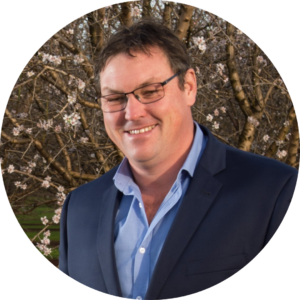
Danny Le Feuvre
AustraliaDanny is the Chief Executive Officer of the national honey bee industry peak body, the Australian Honey Bee Industry Council and non-executive Director of AgriFutures Australia. He has a commercial beekeeping background of 15 years providing pollination services and honey production in South Australia. Danny has been at the frontline in Australia’s battle to eradicate Varroa mites in an industry liaison officer role.
Danny has been involved in primary industries his whole career with a strong background in agricultural science, RD&E and agribusiness consultancy. Throughout his career, Danny has successfully led and contributed to many research projects and has published scientific peer-reviewed papers.
Danny’s holds a Bachelor of Applied Science from Melbourne University, Masters of Agribusiness from the University of Adelaide and is a graduate of the Australian Institute of Company Directors (GAICD).
He is passionate about rural industries and a strong advocate for the honey bee industry.
New Zealand speakers
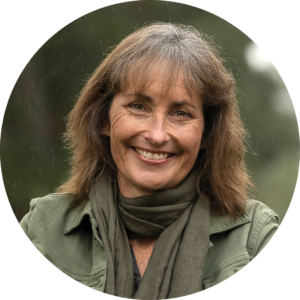
Councillor Karen Barker
Rotorua Lakes CouncilKaren has been dairy farming with her husband Ross for over 35 years and is also a Registered Pharmacist. She recently retired from practising as a community pharmacist for over 25 years, to concentrate on her work for the Empowered Learning Trust (a charitable trust that helps identify and support young people with learning and processing difficulties – in particular Irlen Syndrome).
As a result of her work for the Empowered Learning Trust, Karen won a New Zealander of the Year “Local Hero Award” and was also a finalist in the Women of Influence Awards in 2019. While working as their trust manager, the organisation won the New Zealand Charity Reporting Awards for Tier 4 Charities in 2019, and was also one of three finalists in the New Zealander of the Year Awards in the Community category, in 2018.
It was her passion for rural communities that led Karen to stand for the rural ward in the recent Rotorua Lakes Council local body elections. It is her hope that in her role on Council she will help bring a uniquely rural perspective to the table and help to connect and empower the rural communities of the Rotorua district.

Pattrick Smellie
JournalistPattrick Smellie has more than 35 years’ experience reporting and working in New Zealand politics and the commercial sector. A former Press Gallery chairman, he is an award-winning journalist and has worked for titles including The Dominion, The Press, Sunday Star-Times and National Business Review. He was the first NZ correspondent for The Australian and co-founded BusinessDesk in 2008. He was judged New Zealand’s best overall columnist and business columnist of the year at the Voyager 2021 Media Awards and is a principal of The Hugo Group, a briefing service for chief executives of NZ companies of scale.
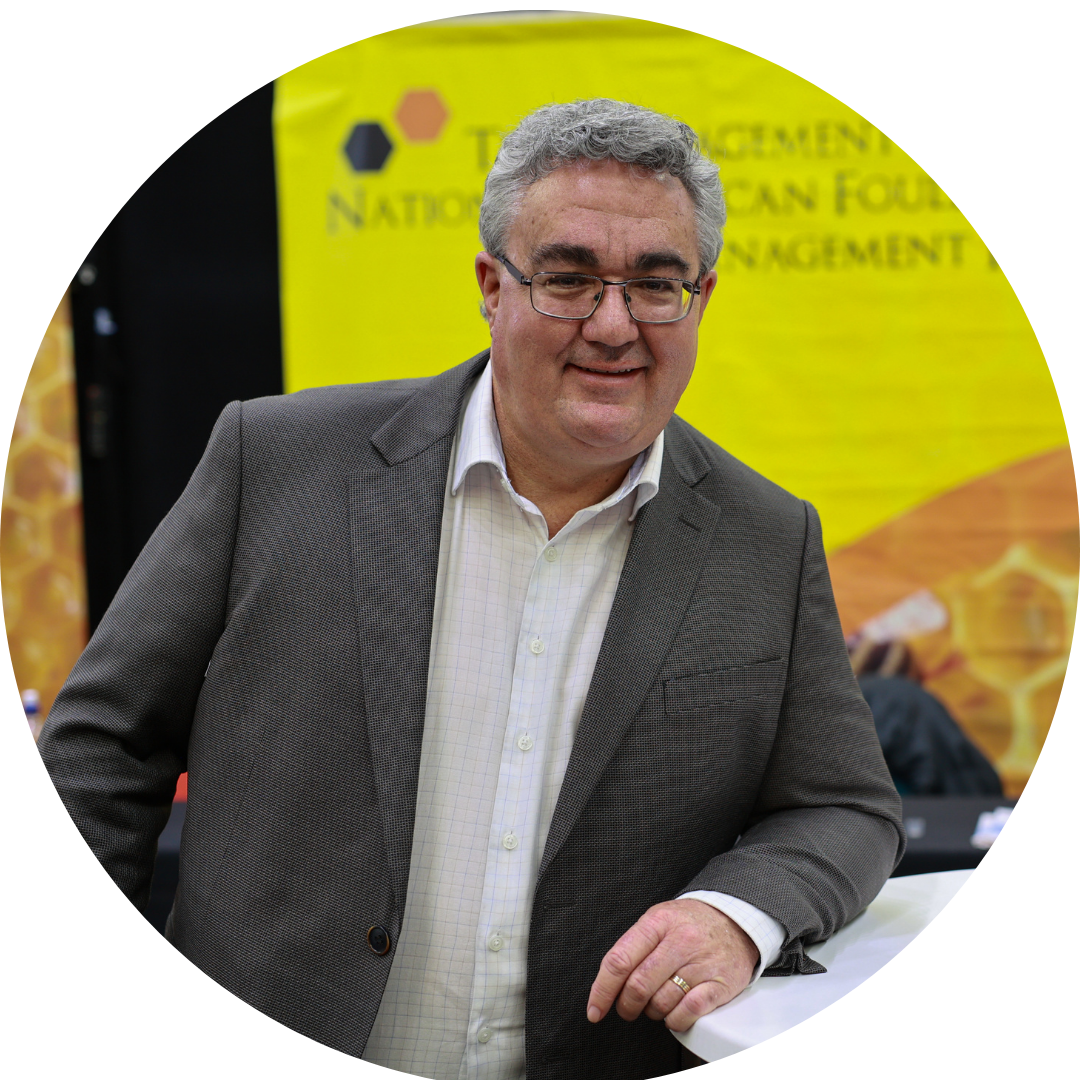
Clifton King
AFB National Compliance ManagerClifton is the National Compliance Manager at the Management Agency, American Foulbrood Pest Management Plan.
He is a veterinarian and senior biosecurity professional, specialising in surveillance and disease response. He worked for the Ministry of Agriculture and Forestry in various roles for a 12-year period from 2000 to 2012. During this time he worked on the 2000 Varroa incursion response, the design of the South Island Varroa surveillance programme, the 2001 outbreak of foot-and-mouth disease in the UK, and the foot and mouth disease hoax on Waiheke Island in 2005.
He is responsible for the development of FarmsOnline – a comprehensive register of all New Zealand’s farms to enable MAF to quickly identify and contact New Zealand’s farms in the event of an exotic disease outbreak.
He also led the transformation of MAF’s incursion response systems to more enable more effective management of outbreaks of exotic disease and pests.
He is enjoying the opportunity to work with the honey bee industry again, and is looking forward to working with beekeepers to make changes that will enable beekeepers to further reduce the incidence of AFB in New Zealand.
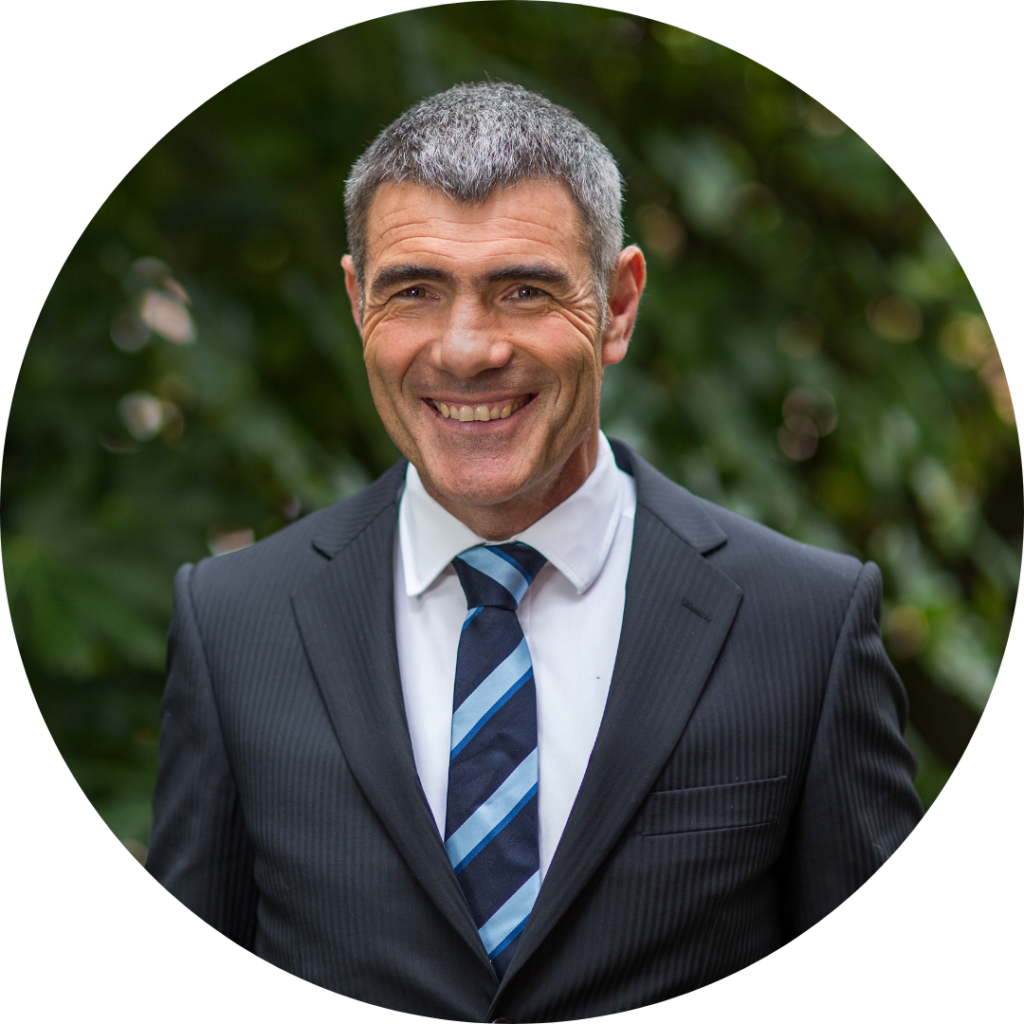
Nathan Guy
ApiNZ Board ChairNathan took over as Apiculture New Zealand’s Independent Chair in July 2022. He has a rich background in the primary sector, being a former Minister for Primary Industries and a dairy farmer. He brings a strong understanding of the challenges and opportunities faced by the apiculture sector and knowledge of the key areas including biosecurity and honey regulations as well as experience of international markets and consumers.
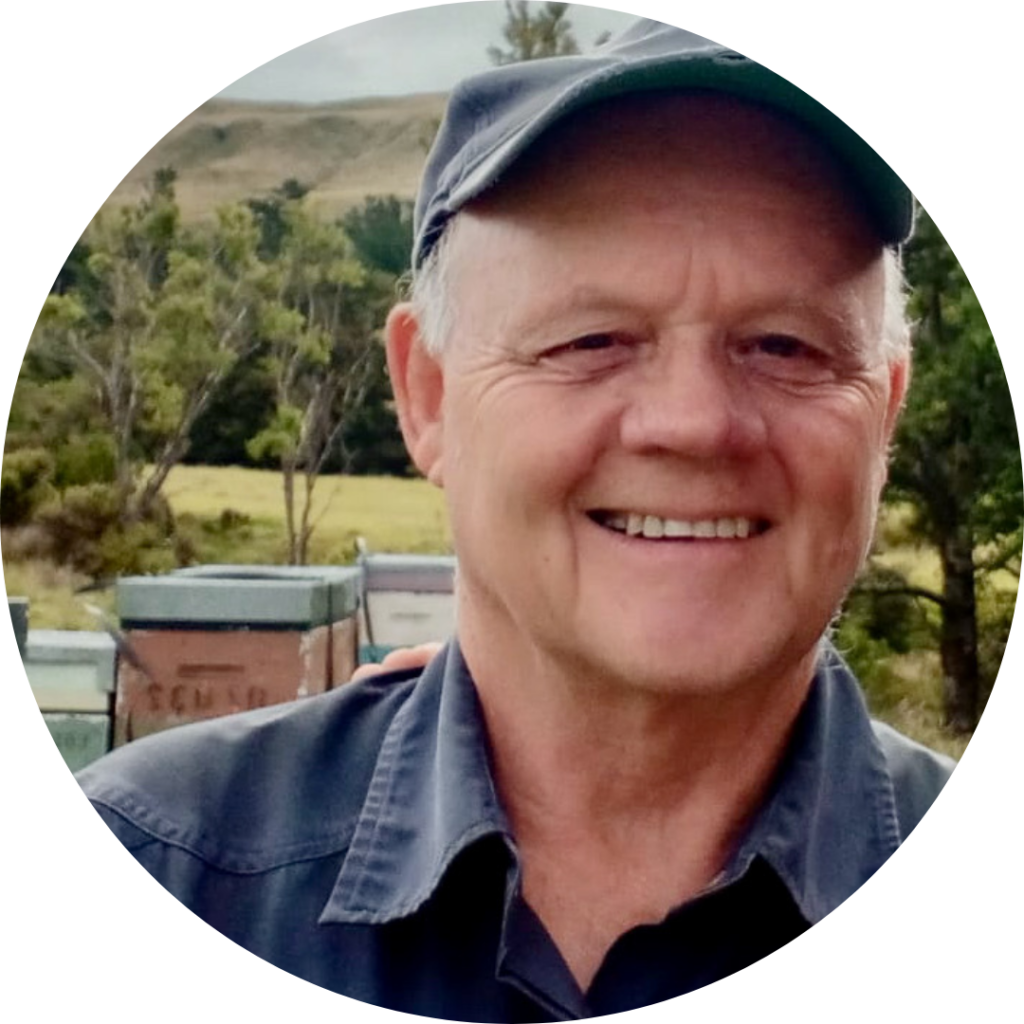
Barry Foster
Barry has been a member of the Apiculture New Zealand Science & Research Focus Group since 2016. He is a Trustee of the Honey Trust and former President of the National Beekeepers Association. In 2022 he was made a life member of ApiNZ. Barry has some 40 years experience as a commercial beekeeper plus 11 years on the NBA executive and nine years on the board of the AFB Pest Management Plan. His passion is to see the apiculture industry develop a sustainable and well funded research program for industry good research. Barry is chairman of the research group involved with the introduction of a biological control aimed at combatting the Giant Willow Aphid. Barry is Chairman of the Gisborne Tairāwhiti Hub of ApiNZ.
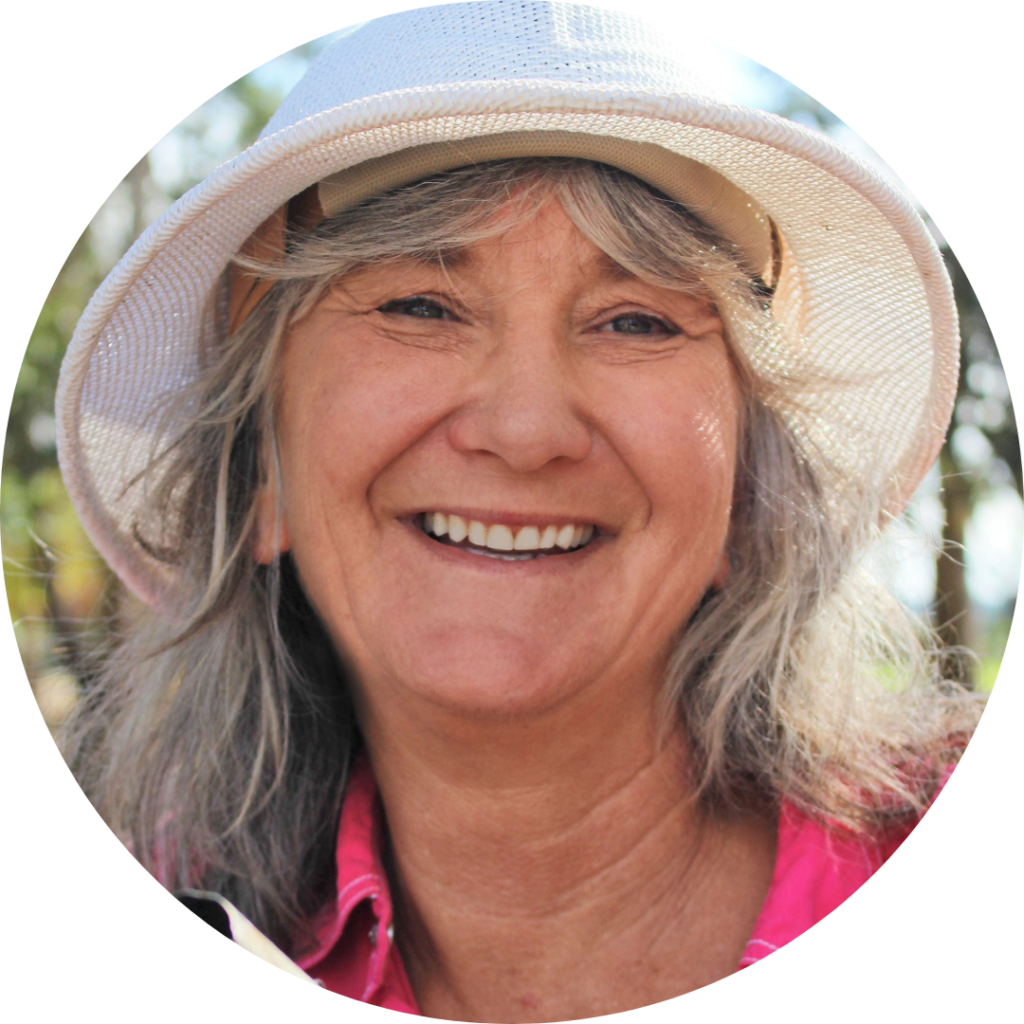
Rae Butler
Rae is a queen breeder in Canterbury specialising in breeding for VSH queens including instrumental insemination technology. In 2022, Rae was awarded funding from the NZ Honey Trust for one year project on Varroa Resistance Breeding in New Zealand. The aim is to investigate the expression of the VSH trait in commercial bee colonies and to engage in technology transfer via a written protocol for VSH testing and organising a NZ Queen Bee Breeding Association. Rae also dedicates time to promoting and organising the industry good NZ Mite monitoring and management program. Rae serves as an AP2 inspector for AFB and for the Exotic Surveillance program as well as an ambassador for the NZ Trees for Bees programme.
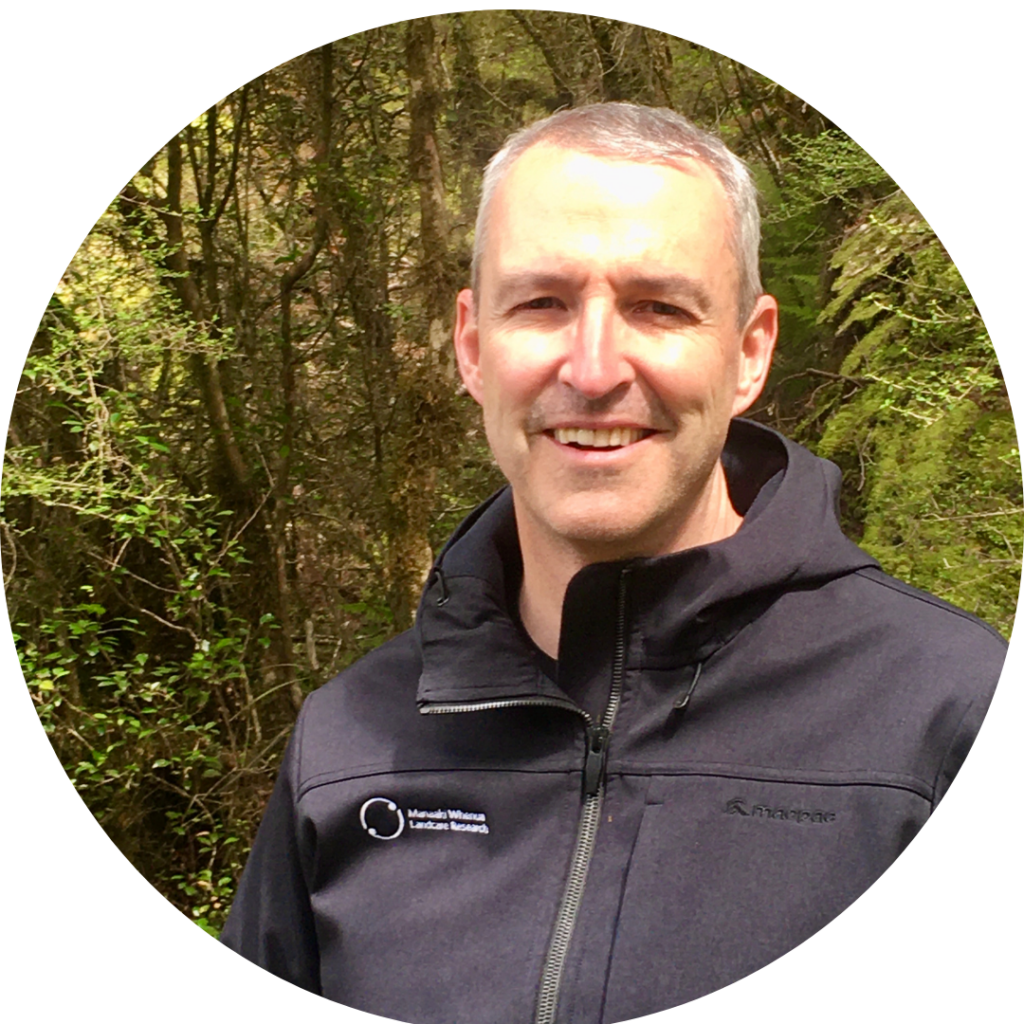
Pike Stahlmann-Brown
Pike is Principal Economist and Research Priority Area Leader at Manaaki Whenua – Landcare Research. He is an applied micro-econometrician with expertise in innovative survey design, enumeration, and analysis and an interest in economic behaviour, valuation of natural resources and apiculture. Pike has developed and led innovative trainings on economic valuation of invasive alien species, biodiversity and ecosystem services across the world. He has directed the annual NZ Colony Loss Survey since 2015, the bi-annual Survey of Rural Decision Makers since 2013 and the tri-annual Environmental Perceptions Survey since 2022. He also leads the Environmental Stewardship and Kaitiakitanga strategic outcome for New Zealand’s Biological Heritage National Science Challenge.
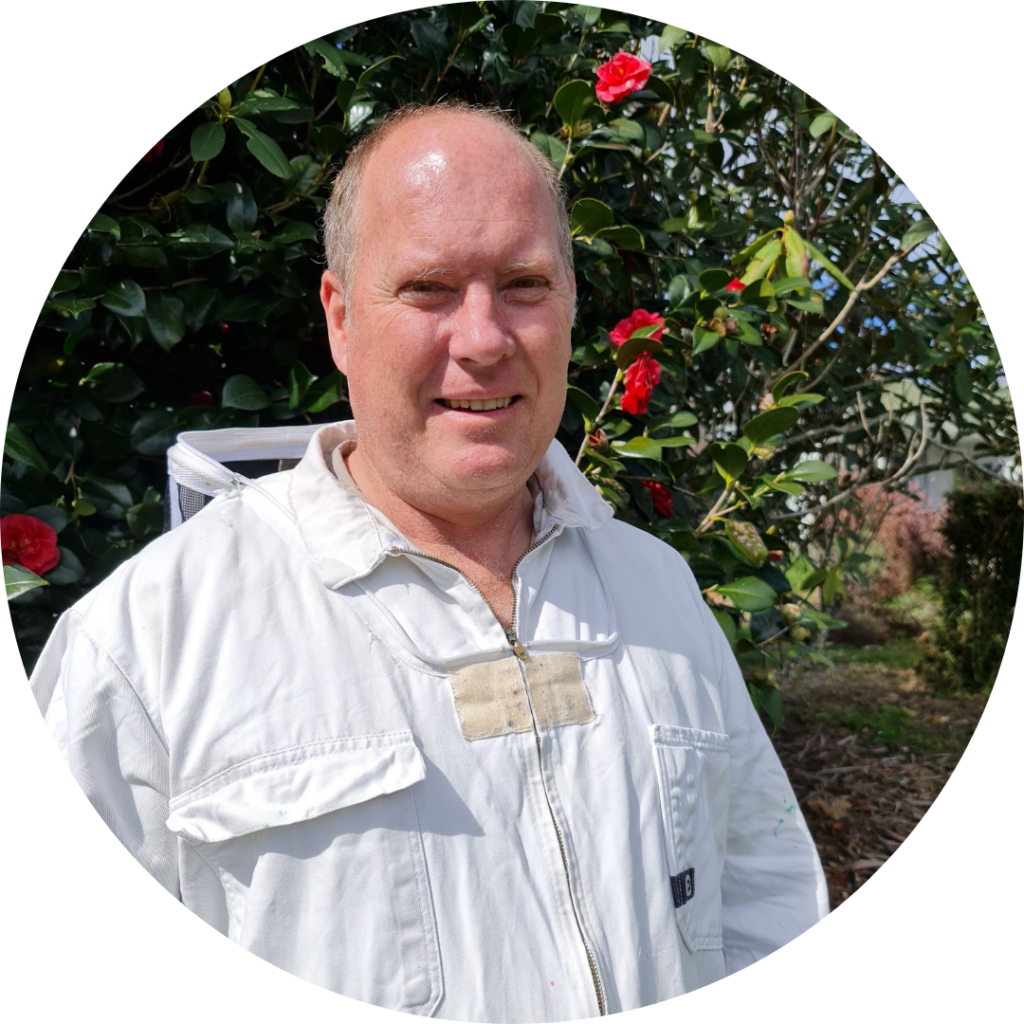
Steve Jackson
Steve has been practicing as a Chartered Accountant for nearly 30 years, 24 years of which as a partner at Jackson Blakeman in Gisborne.
Steve and his wife Lilian have been semi-commercial beekeepers for about 6 years on their property at Tiniroto. Steve has been an active committee member of the Gisborne Tairāwhiti APINZ Hub since 2018.
He has worked with a wide variety of industries and has a lot of experience with business consulting, and succession planning. About 40% of his clients are involved in the rural sector with the balance ranging from manufacturing, fishing, commercial businesses, service industry clients and of course beekeepers.
He holds a few key Governance positions and has a wealth of experience working in voluntary roles with service organisations, Trusteeships and Chair of several organisations in his career.
Steve loves the outdoors whether it is fly fishing on the Ruakituri river, hunting deer in the Urewera’s, tramping the hills or playing on his digger.
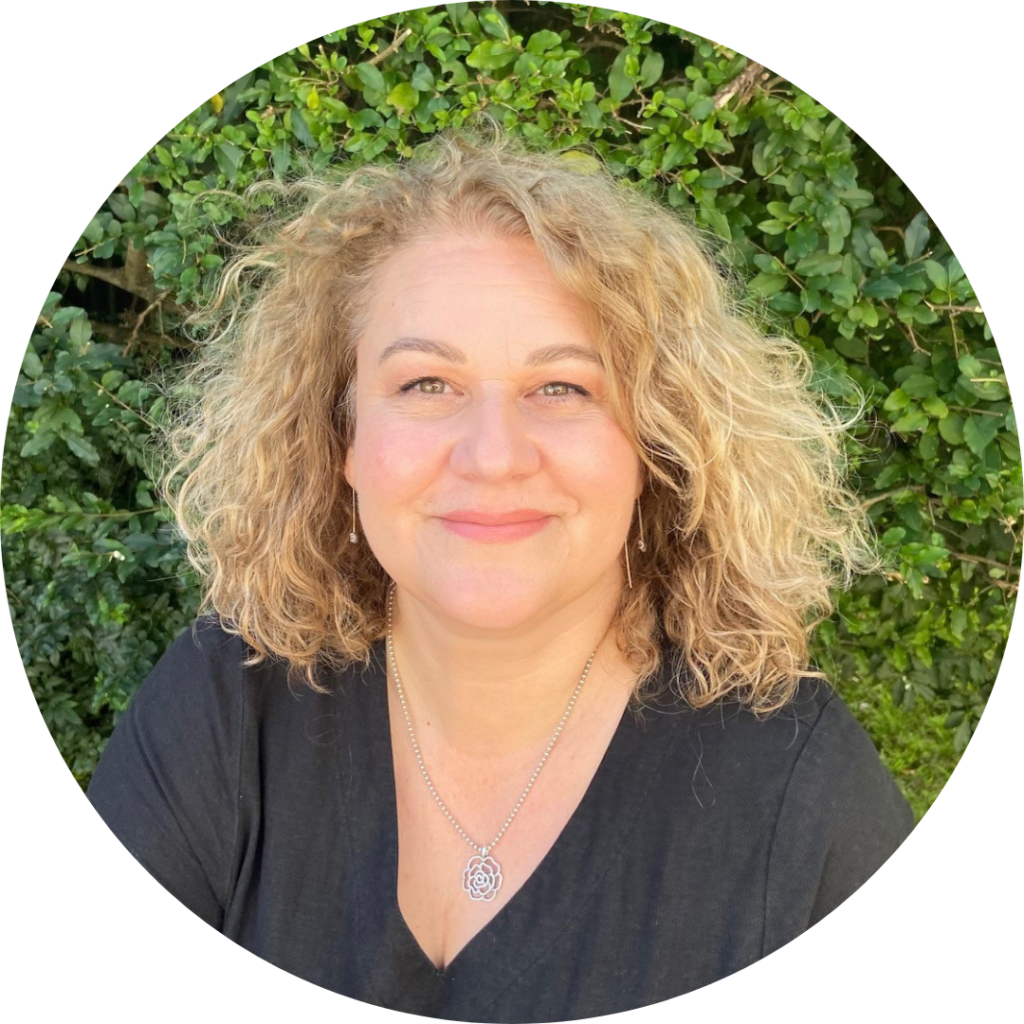
Rebecca Margetts
Born in France, Rebecca is an avid foodie, who has spent her entire career in the New Zealand food industry. For nearly 20 years, she has been passionate about sharing the best of New Zealand’s “food basket” with the world.
Whilst her export experience spans a wide range of premium foods, she has spent the last 5 years in the honey industry. As GM of Sales & Marketing at Taylor Pass Honey, she has overseen their launch into several new international markets, such as the US and the UK, as well as setting up new partnerships.
Rebecca is a firm believer that sustainable and ethical practices are the key to the success of any business. As a strong advocate for B Corp certification, she feels that we all have a responsibility to play our part for a better future.
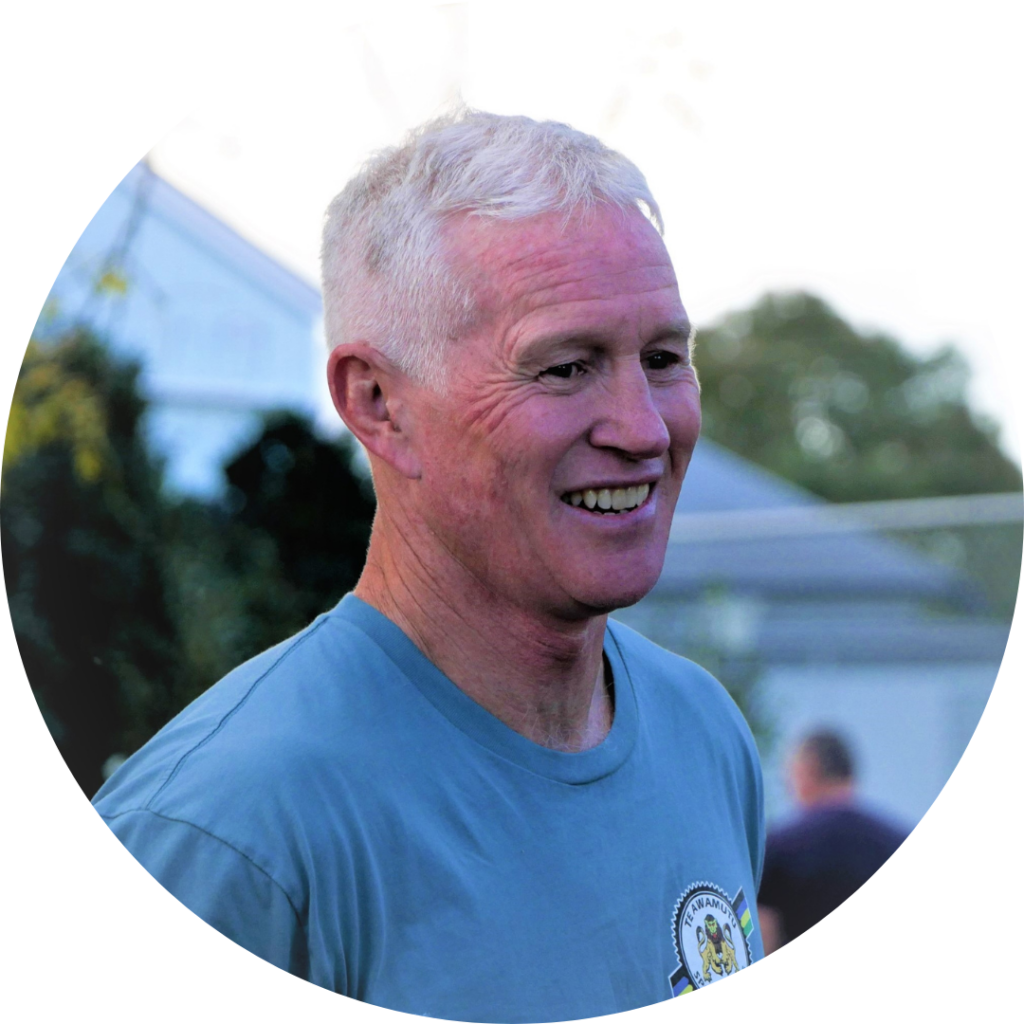
Marc Gascoigne
Marc is a 57-year-old dairy farmer from Cambridge in the mighty Waikato.
Marc suffered from debilitating anxiety and depression for many years, although no-one would have known because he hid it away, embarrassed and ashamed at not being able to meet his own expectations. But after losing two friends and one family member to suicide, he finally came to a turning point and decided he had to do something about his mental health.
Now he is a facilitator with the Rural Support Trust, and an ambassador for Farmstrong, which is a rural wellness programme. After hiding it away for many years, now he will talk to anyone who wants to listen, about how he overcame those challenges and is now, in his own words, “living the dream”.
Marc is a firm believer in that to succeed in business and to be resilient in the face of tough times, you must firstly have the top two inches performing well.
Although he has never put a beekeeper suit on, Marc has hives on the farm and recognizes the value that bees add to his farming operation.
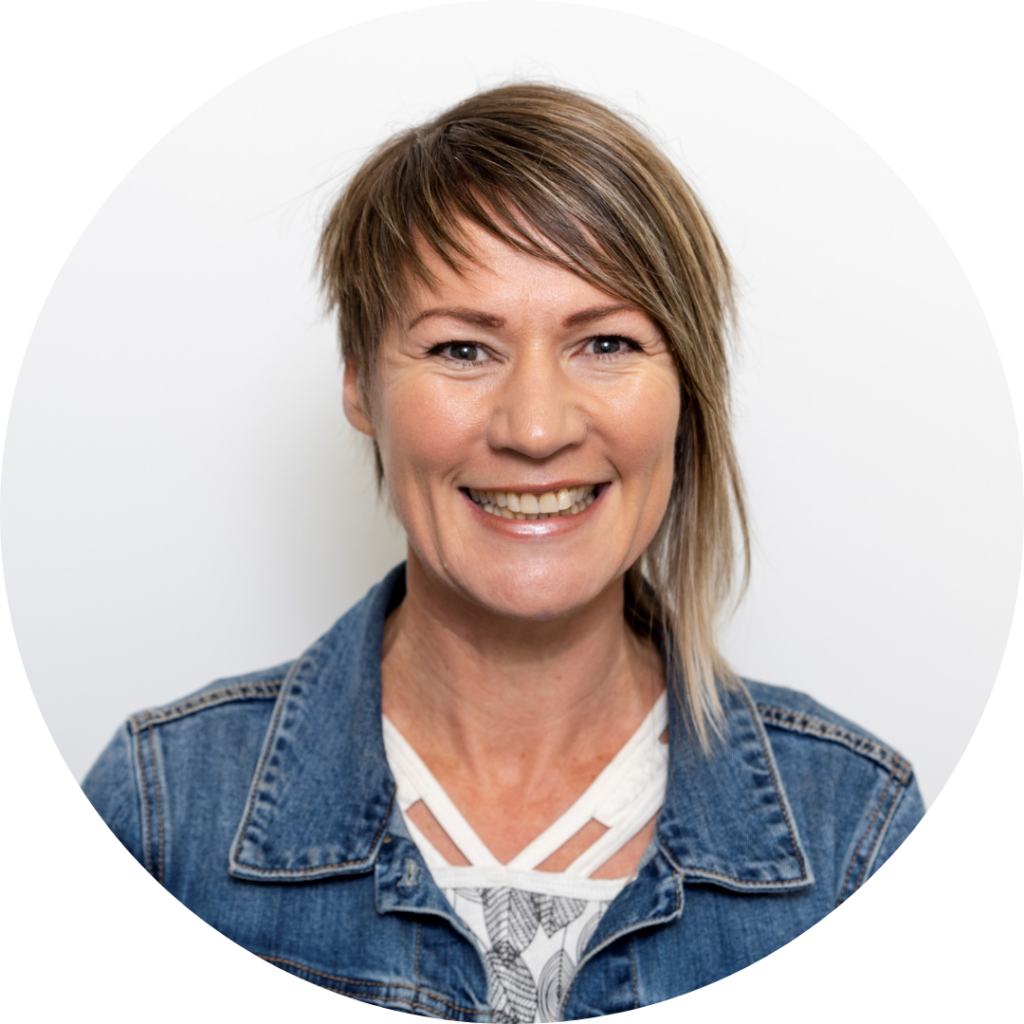
Dr Michelle Taylor
Dr Michelle Taylor conducts research for The New Zealand Institute for Plant and Food Research relating to honey bees and bumble bees. She has worked on pests and diseases, gut bacteria, pollination, pesticides, and environmental biomonitoring.
Since the arrival of varroa in New Zealand, Michelle has played a primary role in researching varroa control methods using synthetic and organic products, bee breeding programmes, and slow-release matrices for new products. She played a significant role in developing the Technical Response Plan for Varroa in the South Island, the Operational Plan to eradicate Varroa destructor from the Nelson Region, and the Plan for the pollination of crops affected by the South Island varroa response.
Michelle’s work has mitigated colony loss and disruption to both the beekeeping industry and the numerous bee-reliant horticultural and agricultural industries in NZ. Michelle is currently a Technical Advisor for the 2022 Varroa response in NSW, Australia.

Phil Lester
Phil is an academic and researcher at Victoria University of Wellington. A key strand of his research involves the development of safe and effective control options for pest species such as the varroa. This research includes work on bee populations that show resistance to varroa. We also work on next-generation approaches that include immunotherapy and the potential of double-stranded RNA for highly targeted mite control.
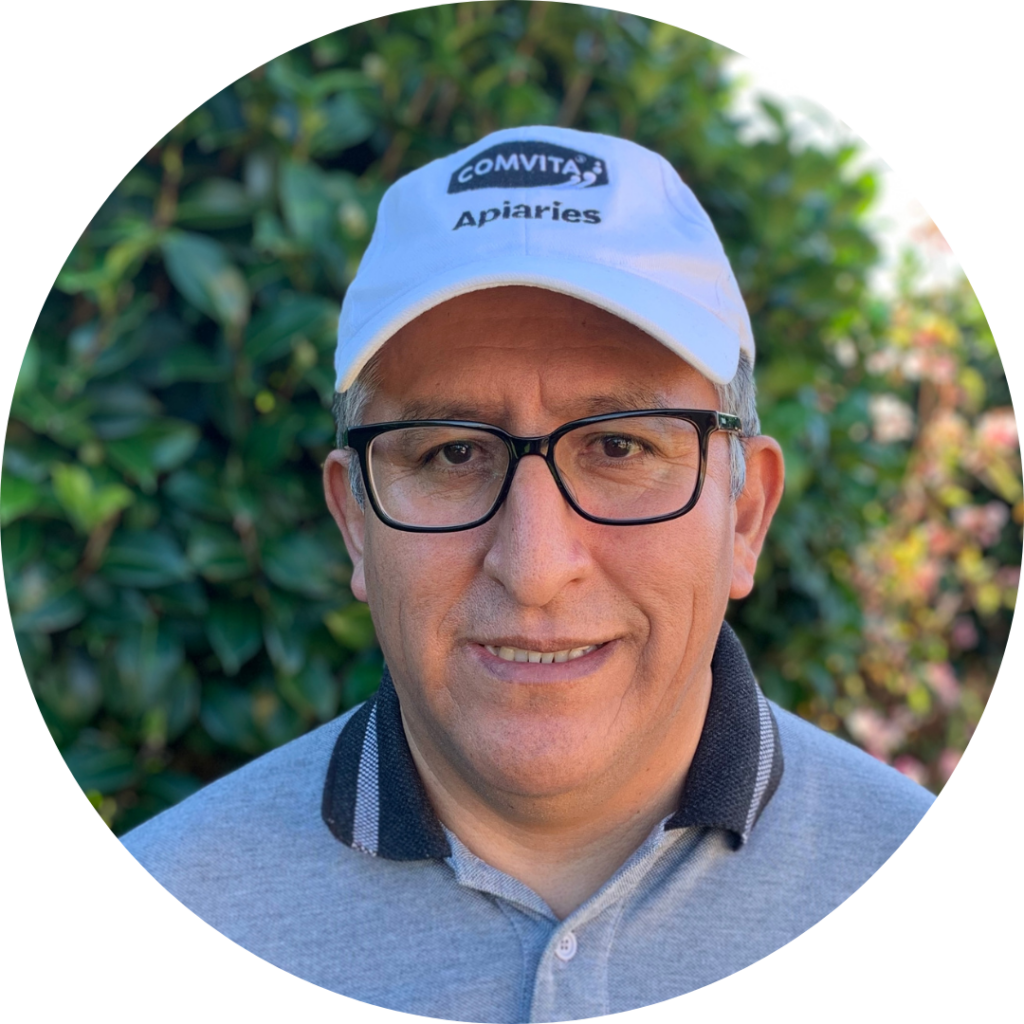
Carlos Zevallos
Carlos is Head of Apiary Development for Comvita New Zealand. He graduated with a Bachelor of Animal Science from the National University of the Center of Peru and started beekeeping at 21 years of age in his homeland of Peru. Carlos worked for six years for a commercial beekeeper in Canada and for more than 20 years as a manager for a commercial mānuka honey operation in New Zealand. He recently helped train Massai women in Kenya as part of Comvita’s Saving the Wild beekeeping project.
Carlos has a passion for bees and learns from them every time he gets in contact with a colony. He hopes to give back to bee populations by promoting actions to protect them and their habitats, improve their abundance and diversity and support the sustainable development of beekeeping around the world.
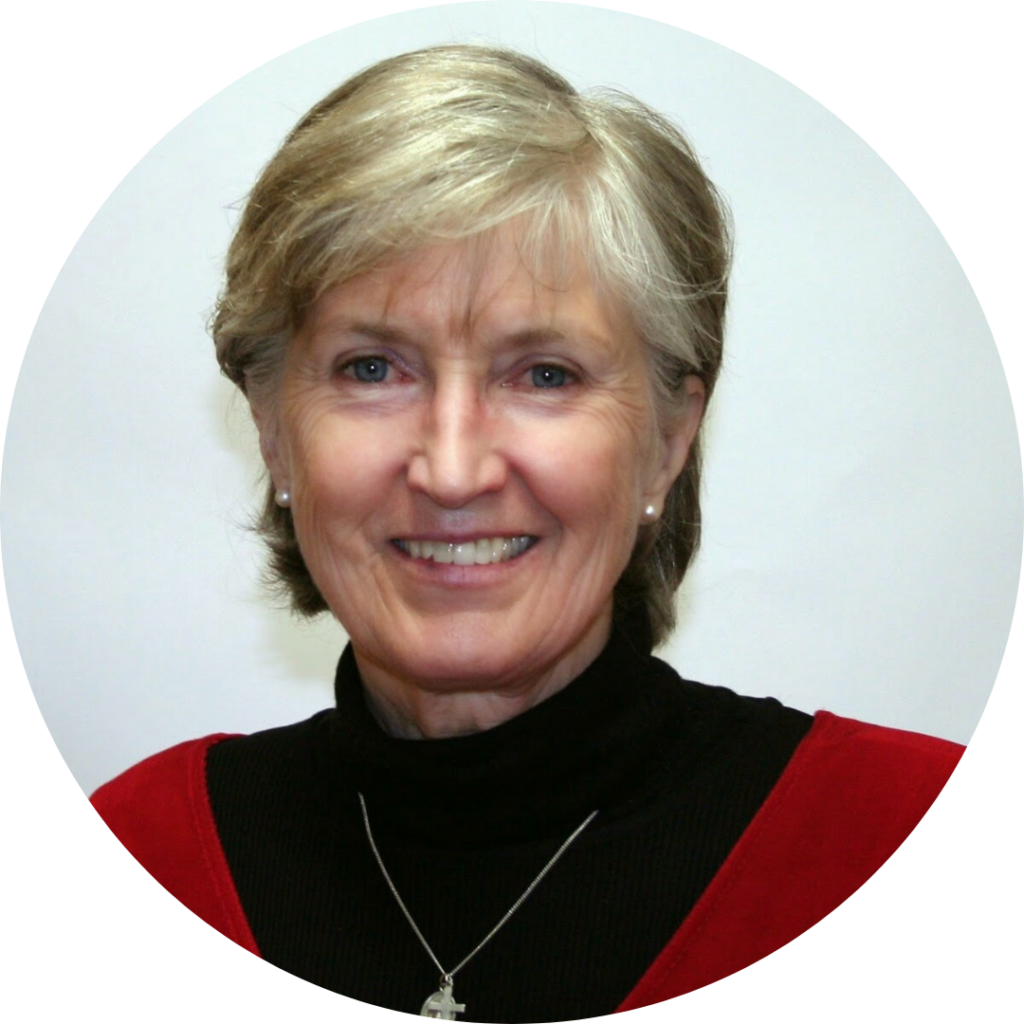
Dr Linda Newstrom-Lloyd
Linda is a botanist and pollination biologist conducting research for the Trees for Bees NZ programme funded by the Ministry of Primary Industries since 2010. After years of studying which flowers the bees are foraging on in New Zealand, Linda and the Trees for Bees team have developed key resources to help beekeepers, farmers and landowners or managers to plant the best-balanced bee forage for superior bee health. The Bee Plant Finder tool is the most recent addition at https://treesforbeesnz.org/bee-plant-finder-tool. Linda conducts the Trees for Bees NZ field work and organizes lab work to determine which plants provide the best nutrition for bees in New Zealand. The Trees for Bees NZ team was awarded the ApiNZ 2022 Peter Molan Award for excellence in science at last year’s ApiNZ national conference proudly sponsored by Oha Honey.
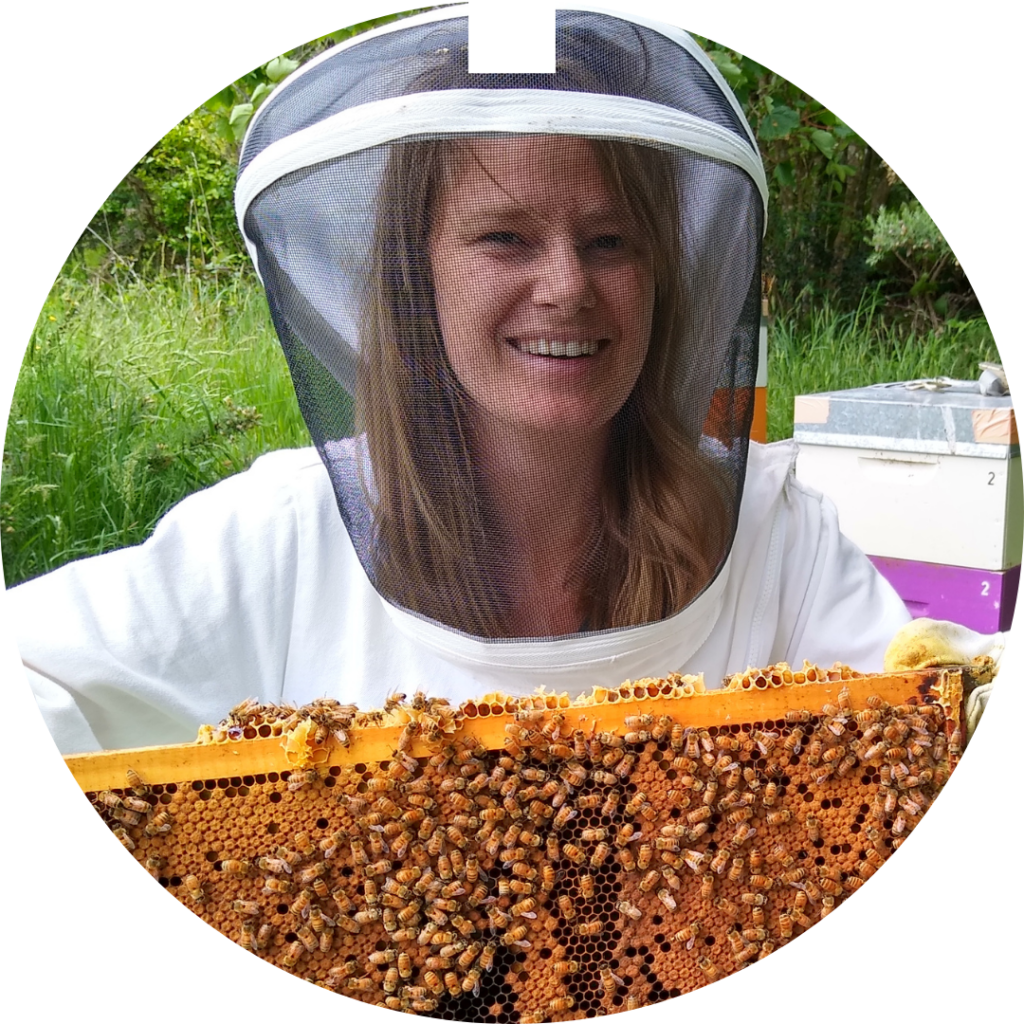
Hayley Pragert
Hayley Pragert is a Senior Advisor at Biosecurity New Zealand, Ministry for Primary Industries. She is part of the Surveillance and Incursion Investigation group based in Auckland. Hayley’s work is centred on honey bee health and pests and diseases. Hayley has worked in Australia in bee biosecurity, and has a MSc in entomology featuring varroa control. Hayley is passionate about bettering bee health in New Zealand, and has spent the last seven years at MPI focused solely on honey bees.
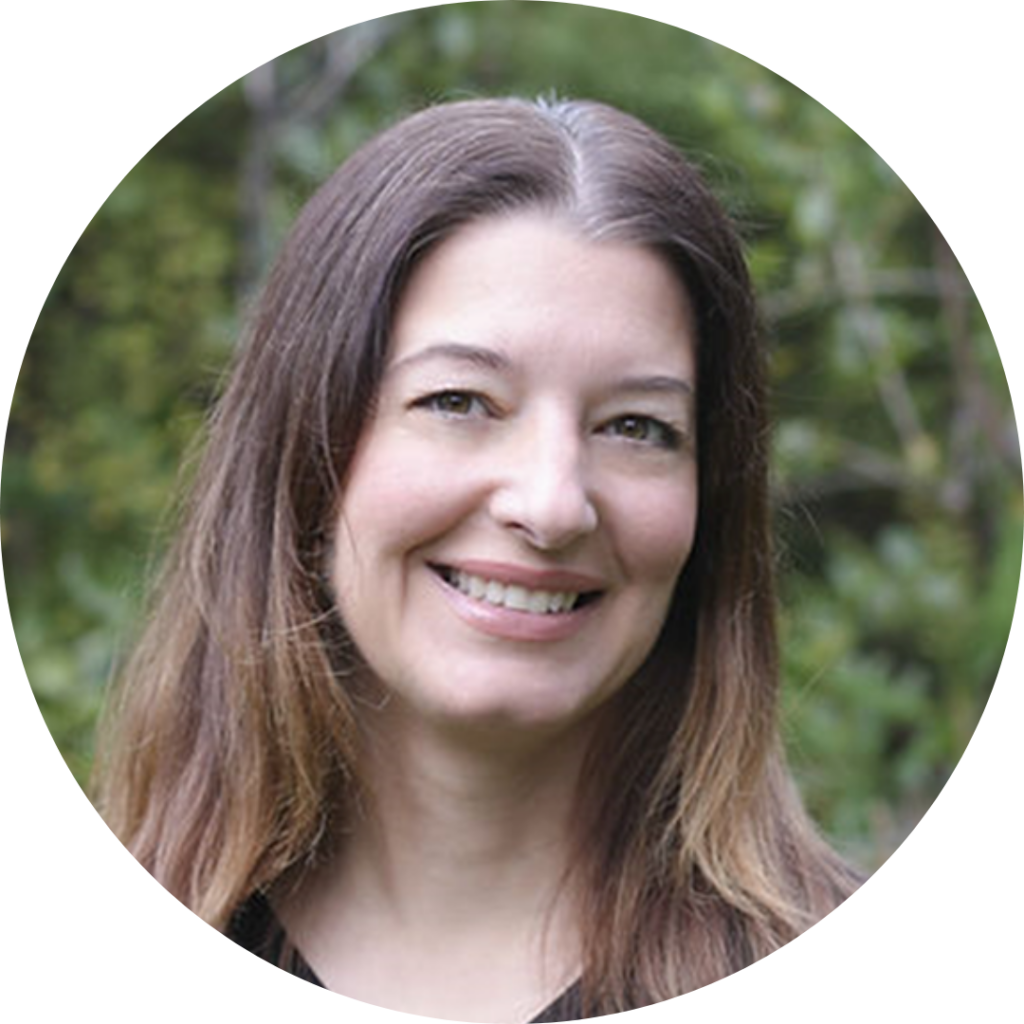
Dr Oksana Borowik
Oksana is a commercial beekeeper and scientist based in the Coromandel, with a special interest in honey bee health and queen breeding. She holds a PhD in molecular phylogenetics from the University of Toronto. She is a member of the ApiNZ Science and Research Focus Group and is on the advisory team of MPI’s Bee Pathogen Programme. She is the Regional Coordinator for COLOSS Oceania.
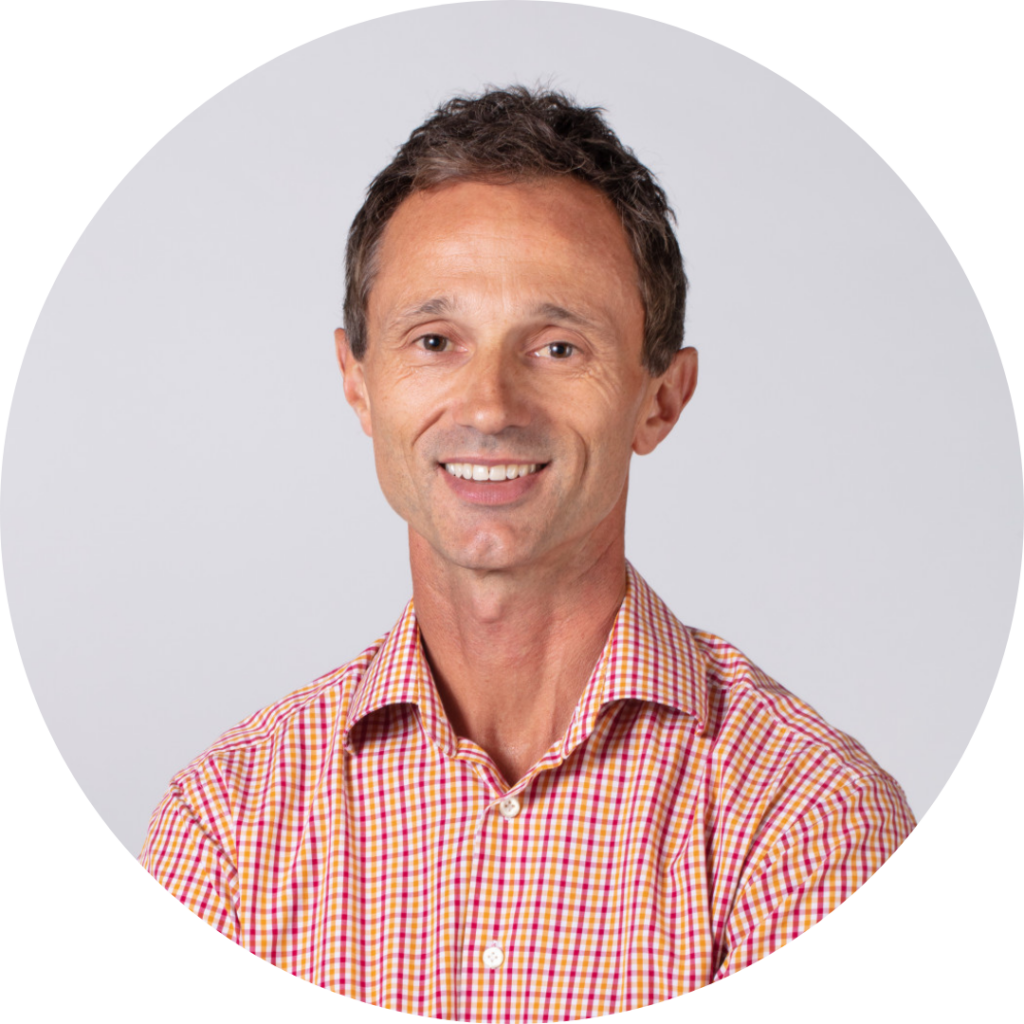
Sean Goodwin
Sean is the Chief Executive of The Mānuka Collective. He works with international customers, global and local regulators and beekeepers throughout New Zealand. This role has given him keen insights into market factors and issues affecting local suppliers. Sean is an ApiNZ board member, and also the current chair of GS1, a global, non-for-profit organisation focused on supply chain efficiency and traceability, and an advisory board member of Viberi NZ Ltd. Prior to joining the apiculture industry, Sean held senior commercial roles within the food industry, working as the Managing Director of Bluebird Foods, and Sales Director of Cadbury.
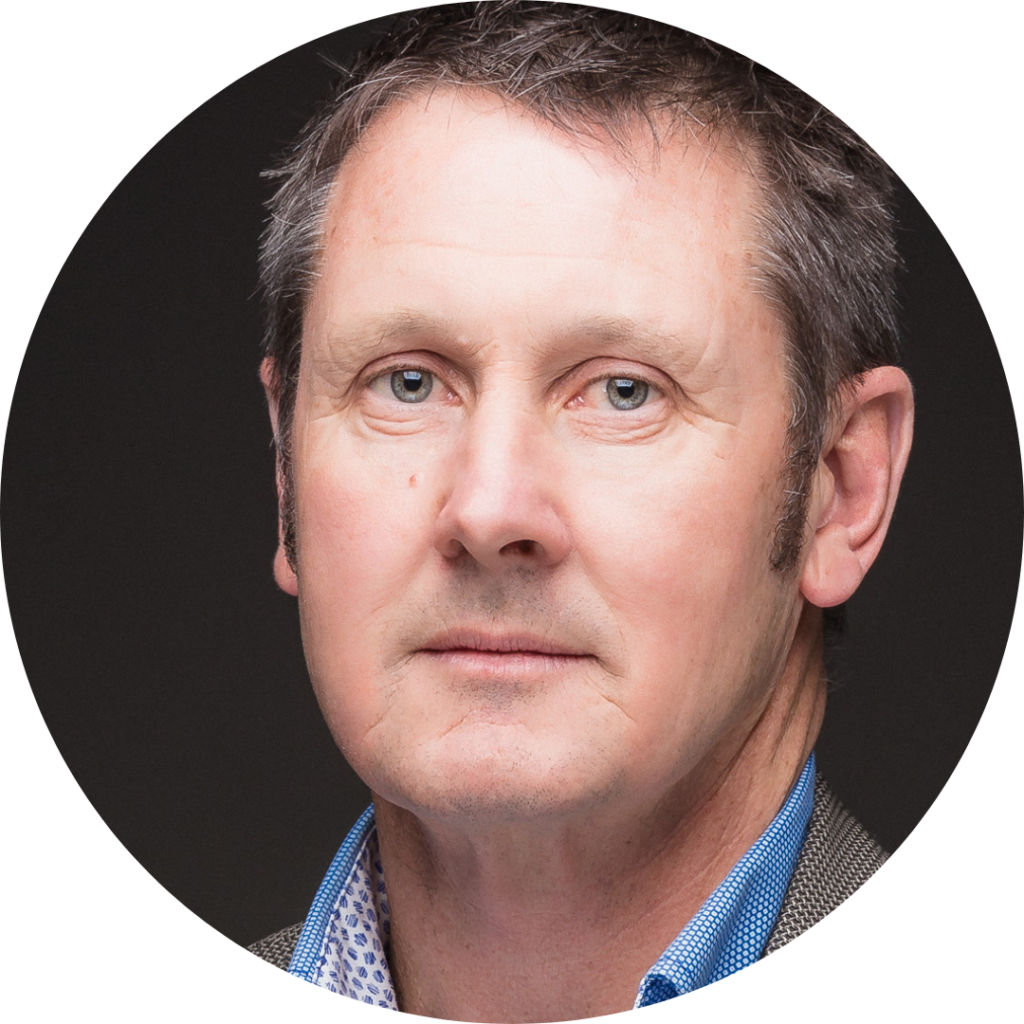
Russell Marsh
Russell is a third-generation commercial beekeeper based in Central Otago. His family’s honey brand was established in 1934 and is well known throughout New Zealand for its white clover honey along with pollination services provided to farms and orchards throughout the Otago region.
Prior to returning home to the bees Russell had a long and varied background as a chartered accountant in the commercial food sector.
He is married to Trudie and has two teenage children Charlie & Molly

Campbell Naish
Campbell has over 25 years of export and global marketing experience from natural products start-ups to some of New Zealand’s biggest primary industry exporters. He has worked extensively with businesses and industry groups in the primary sector and the natural products sector as well as establishing a successful international market development consultancy. Campbell came to the Unique Mānuka Factor Honey Association (UMFHA) to work on projects with the board in late 2019, moved into the role of marketing manager and is currently Acting CEO. He is committed to working with the mānuka sector to support a prosperous long-term future.
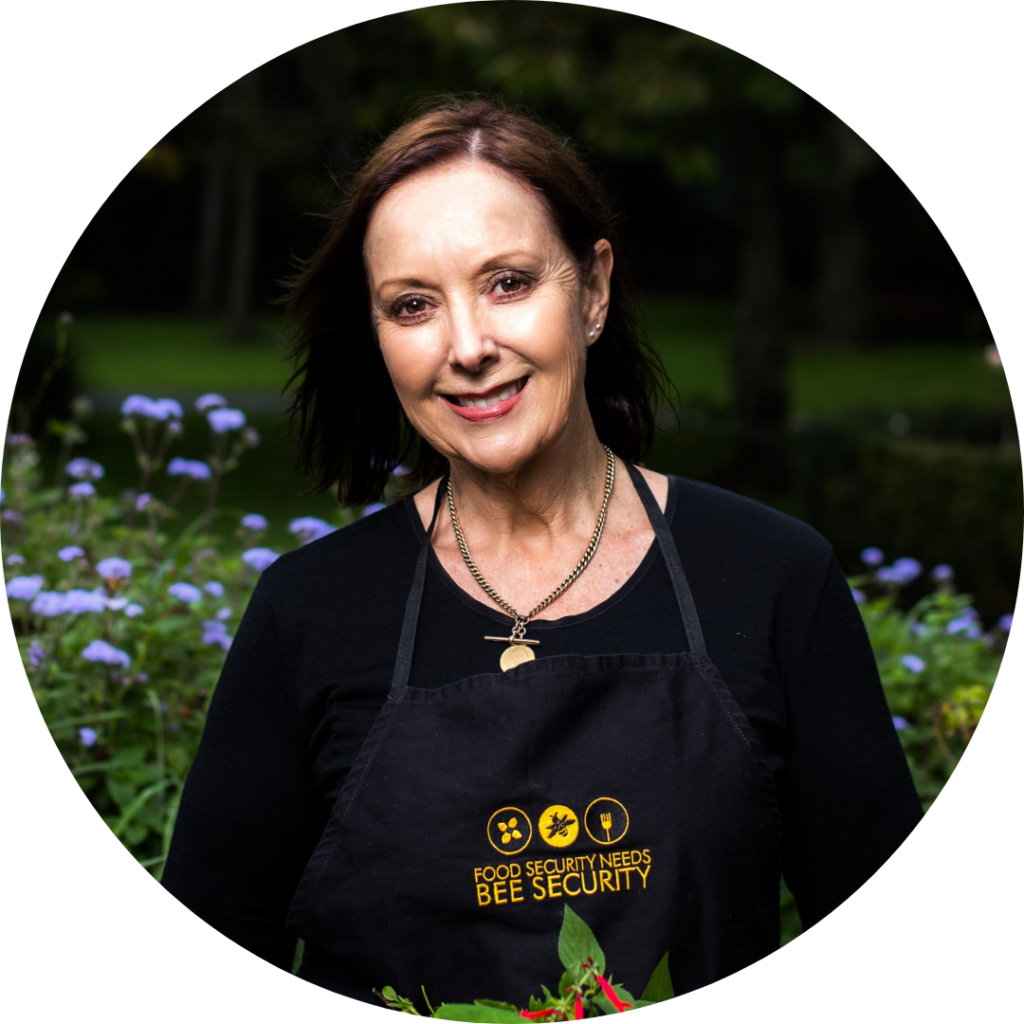
Maureen Conquer
Maureen is Chief Judge and Judges Referee for the APINZ National Honey Competition.
From hobbyist to commercial beekeeper, she founded BeesOnline and a range of gourmet honey products.
Maureen served five years on the National Beekeepers Association executive, retiring in 2011 to take up the role of Oceania Representative for Apimondia, the International Federation of Beekeeping Associations. She promotes our honey, product standards and access on the global market, whilst networking and monitoring new bee diseases, honey fraud, adulteration, pests and threats that may affect our pure NZ Honey.
Maureen is a qualified chef and worked in the wine industry for 27 years before starting in beekeeping in 1998. She has spent many years tasting and developing recipes for monofloral honeys, training chefs both in NZ and on the international circuit and judging in honey competitions all over the world.
Maureen now works as an independent consultant to the honey industry specializing in honey marketing, sensory analysis and product development.
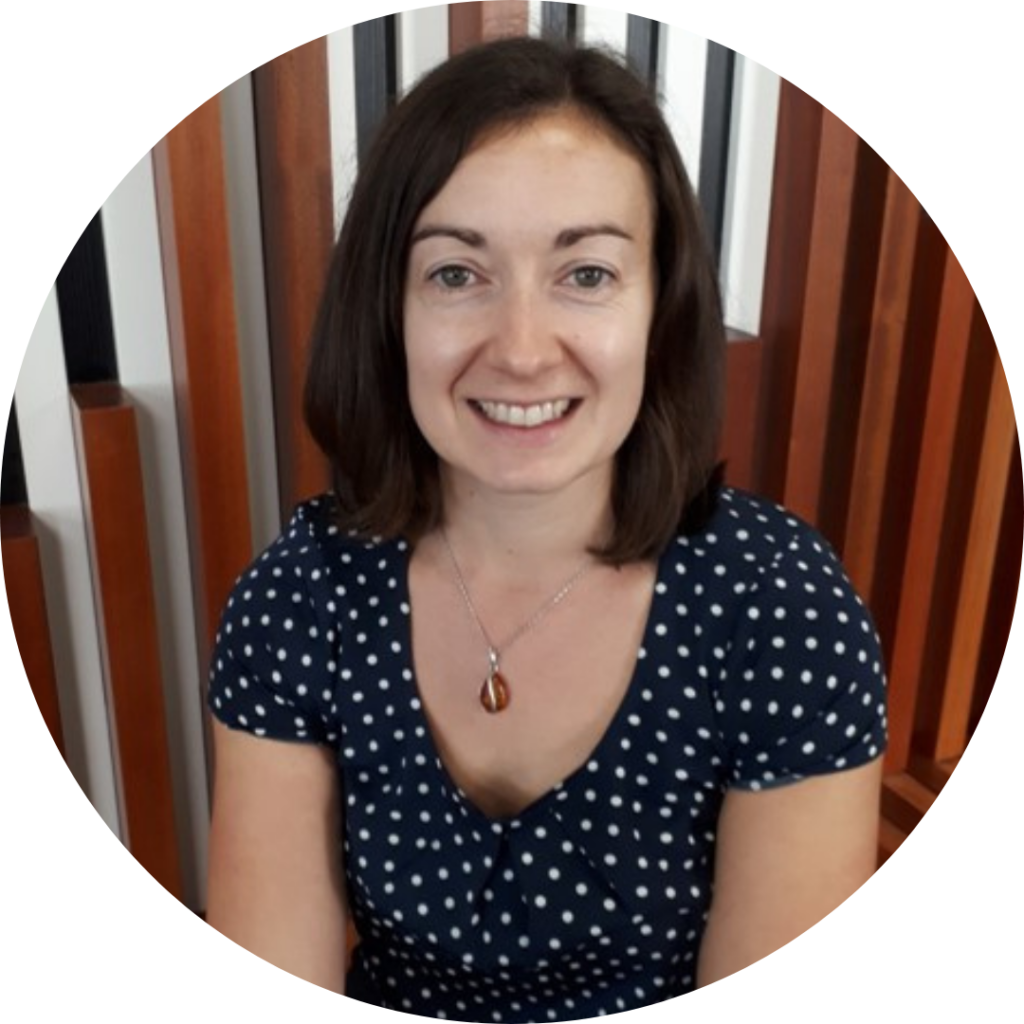
Claire McDonald
Claire has always been passionate about insects and has been involved in researching the factors that influence their distribution for over 15 years. She completed a PhD in plant insect interactions of southern beech tree forests in 2009. Claire then joined the Centre for Ecology and Hydrology in the UK as a statistical ecologist. There she led statistical analyses on a range of projects involving understanding changes in natural environments across the UK and Europe.
Claire moved to New Zealand in 2013 and has worked at the Ministry for Primary Industries (MPI) since then. Claire co-led the MPI mānuka honey science programme to develop the mānuka honey definition. She continues to lead work on science and research activities involving honey and the apiculture industry.
Claire also manages and provides technical advice for MPI’s Operational Research Programme which funds projects in biosecurity, food safety and animal welfare. She actively supports industry as part of the Science Advisory Group for the Te Pītau Science Programme.
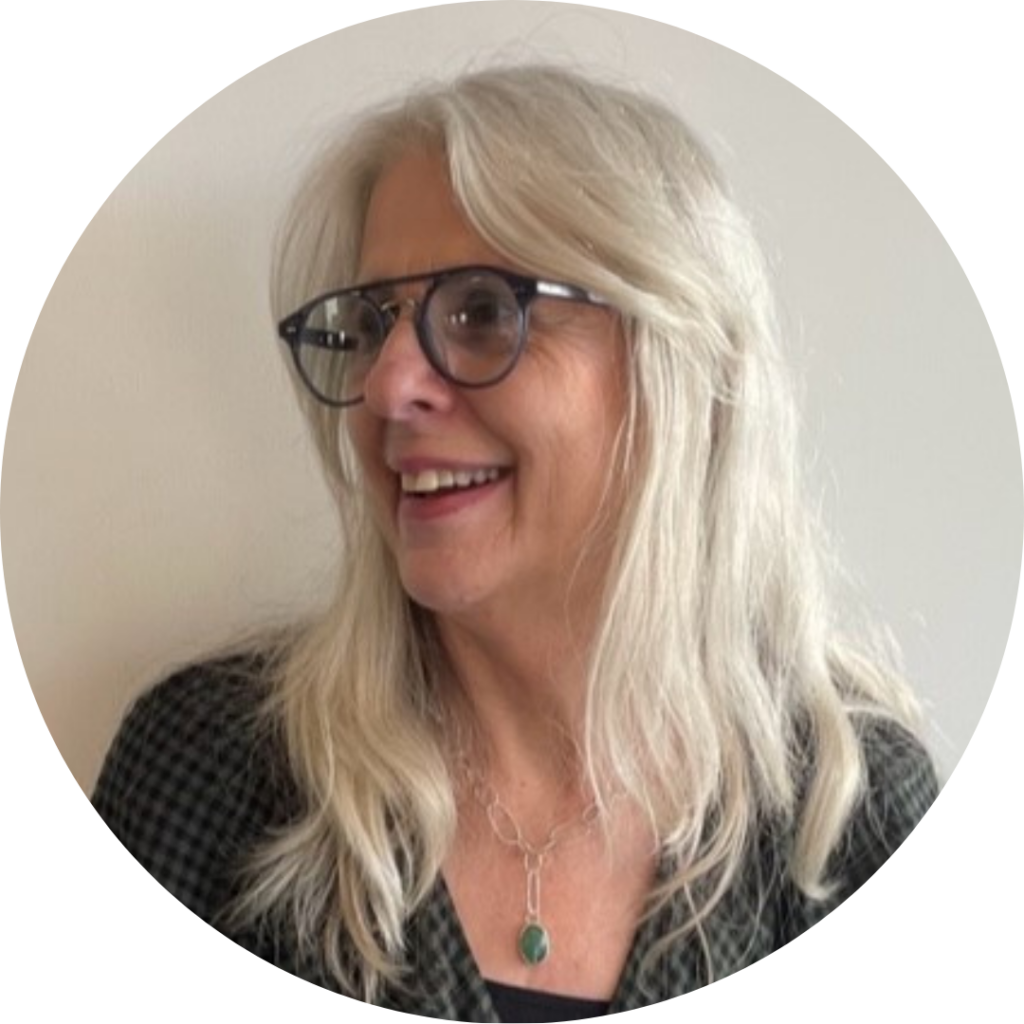
Leone Basher
Leone’s current work as a Senior Market Access Counsellor at the Ministry for Primary Industries specifically focuses on technical market access for bee product, health food and infant formula exports to China. A significant part of this role involves monitoring and analysing changes to China’s regulations for animal product imports and their likely impact on NZ exports and ascertaining changes that may need to be made to MPI’s standards.
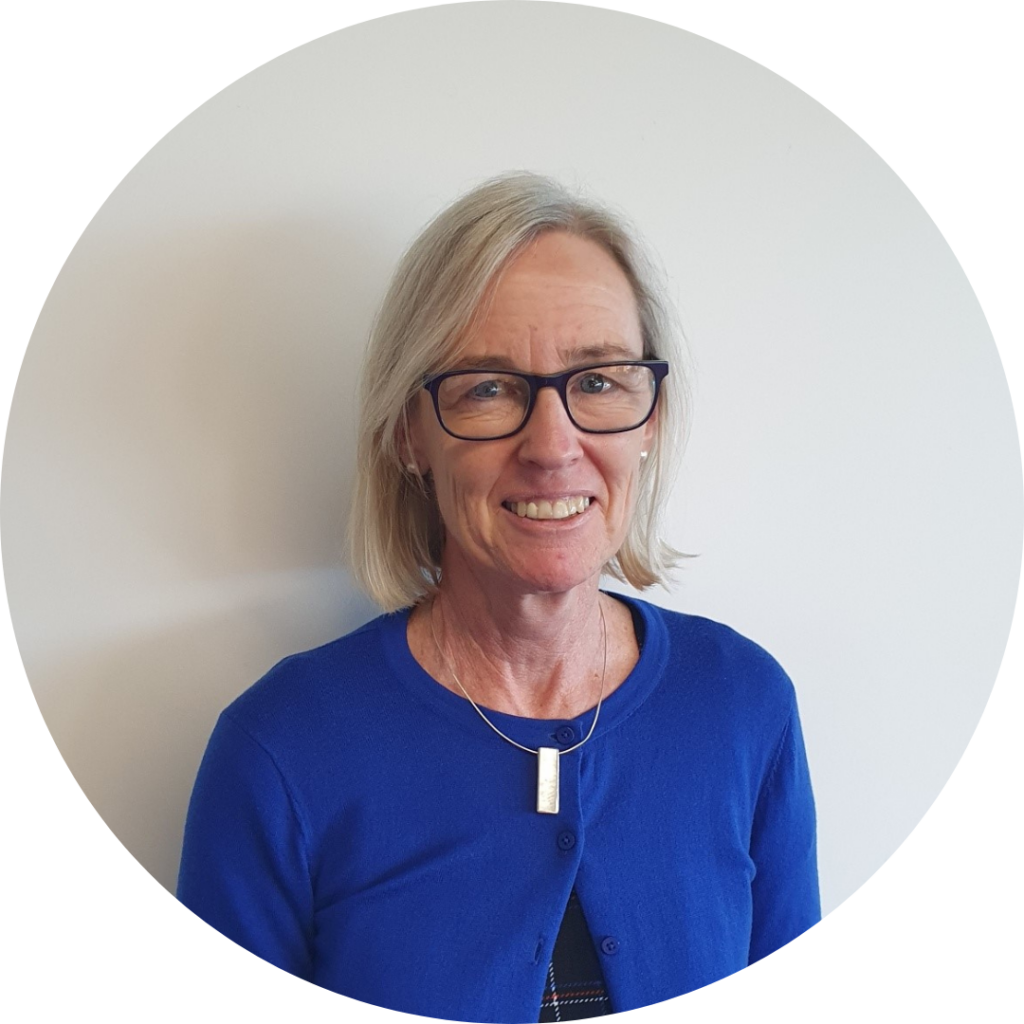
Ursula Egan
Ursula Egan is a Market Access Counsellor at the Ministry for Primary Industries. Ursula is the market access sector lead for honey and bee products which involves coordinating market access input on honey and bee product issues across MPI (eg standards development), engaging with APINZ on market access topics and being the market access point of contact for honey and bee sector issues. Ursula also has responsibility for the Taiwan and Japan market access relationship. Prior to joining market access Ursula has been involved in the development and implementation of joint food standards with Australia, the New Zealand supplemented food standard and the regulation of dietary supplements.

Frans Laas
Frans is a director/owner of Betta Bees Research a company that specialises in producing Italian type honeybees using the closed population breeding model.
Frans has been involved in the apiculture industry for over 30 years as a commercial beekeeper. In 2004 after completing a Masters in Wildlife Management at Otago University Frans joined Betta Bees Research and established the breeding program for the company.
He has also been involved in industry advocacy and has served the National Beekeepers Association as an executive member then president for four years. Frans was chairman of the AFB Management Board for around 11 years and is still involved as an AP2.
Frans is also involved in apiculture training and teaches Level 3, 4 and Queen Rearing through Otago Polytechnic. He is also a Level 1 instructor for the HUNTS programme run by the New Zealand Deerstalkers Association which trains beginner hunters in safe outdoor practices.
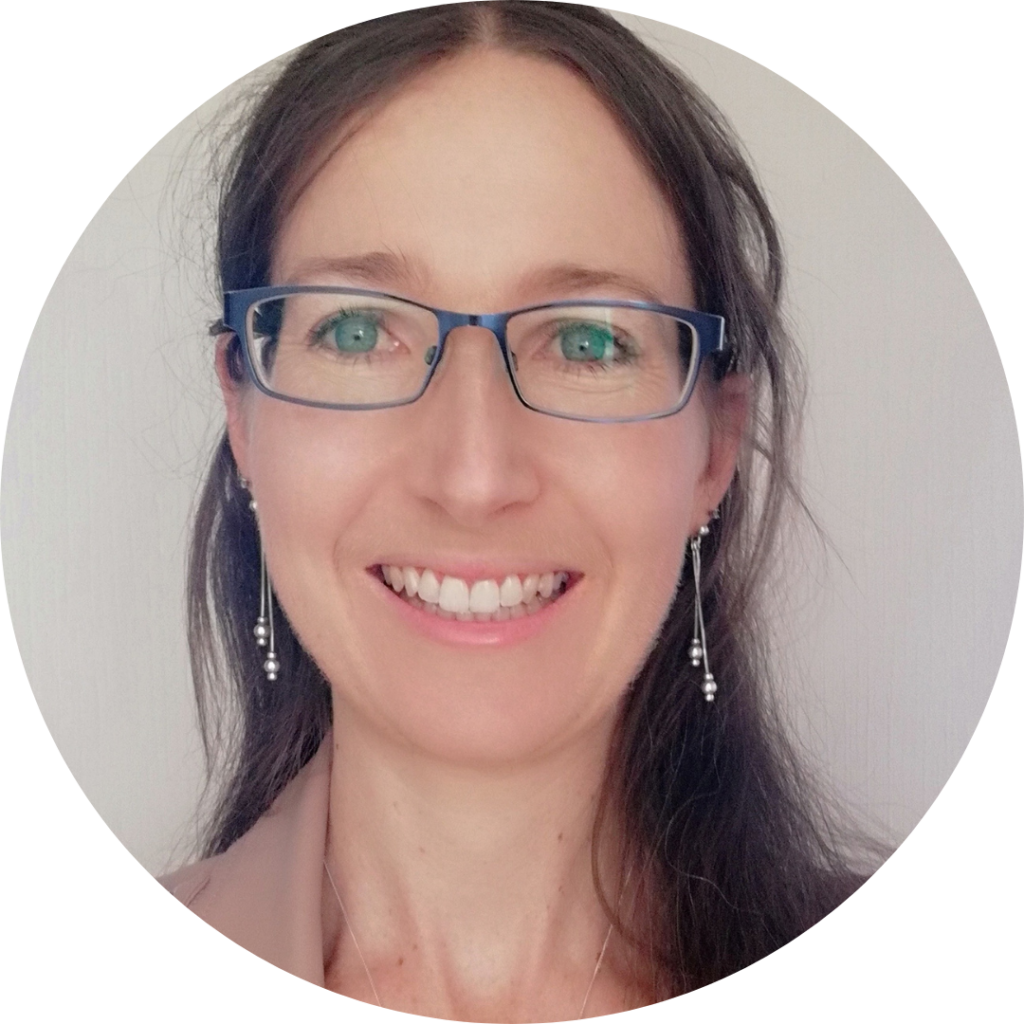
Dr Megan Grainger
Megan is a Senior Lecturer in analytical and environmental chemistry at The University of Waikato. She has been involved in honey research for the past 17 years, initially starting in the team at Waikato University to isolate methylglyoxal (MGO) from mānuka honey. She developed one of the first forecast models to predict the final MGO concentration of an immature honey. She has investigated the phenomenon of mānuka honey failing the C4 sugar and diastase activity tests. Among other projects, she is currently looking at the aroma compounds in native honeys and building an elemental fingerprint to distinguish New Zealand and international honey.
Megan currently has a Marsden Fast-Start grant to investigate the effect that heavy metals have on bees.
She is a member of the Apiculture NZ Science and Research focus group. Megan is passionate about contributing to the scientific knowledge of New Zealand honeys to help the industry showcase these honeys on the world stage.
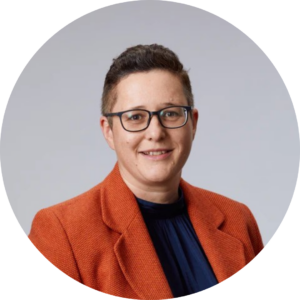
Katherine Brundell
Katherine is the Chief Revenue Officer at Oha Honey. She’s a passionate advocate of showcasing New Zealand businesses to the world. With a background in science and sales, she enjoys the challenge and opportunity that the Apiculture Industry brings. Katherine has previously held the roles of Oha’s Head of Supply Chain and International New Business Manager and brings a deep experience in understanding and meeting customer’s needs and supporting sales growth through collaborative partnerships.
